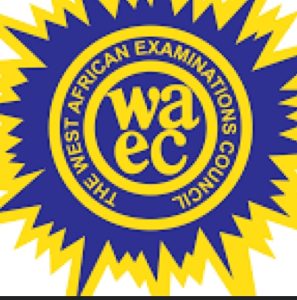WAEC Obj/Essay GCE Civic Education 2025 Expo/Runs Answers– 2025 WAEC GCE Civic Education OBJ/ESSAY Questions and Answers – Free Civic Education questions and answers for private candidates sitting the 2025 WAEC GCE November/December exams. Access the second series of 2025 WAEC GCE Civic Education (CVE) questions and answers here.
All candidates preparing for the 2025 WAEC General Certificate of Education (GCE) November/December exams are informed that the 2025 Civic Education (CVE) Objective and Essay questions and answers are now available for free access.

2025 WAEC GCE Civic Education Exam Information:
- Subject: Civic Education 2 (Objective & Essay)
- Date: Saturday, 13th December 2025
- Time:
- Civic Education 2 (Essay): 9:30am – 11:30am
- Civic Education 1 (Objective): 11:30am – 12:30pm
WAEC Obj/Essay GCE Civic Education 2025 Expo/Runs
Get Early Access to 2025 WAEC GCE Civic Education Questions and Answers by clicking the link below 👇
CLICK HERE TO ACCESS FULL QUESTIONS AND ANSWERS
WAEC GCE CIVIC EDUCATION 2025 OBJ ANSWERS:
===================================
===================================
WAEC GCE CIVIC EDUCATION 2025 ESSAY/THEORY ANSWERS
===================================
===================================
FAQs – Civic Education WAEC GCE Questions and answers Exam
Q1: What is the date for the 2025 WAEC GCE Civic Education exam?
A: The Civic Education exam for WAEC GCE 2025 Nov/Dec series is scheduled according to WAEC’s official timetable, usually in December. Check your registration slip for exact details.
A: You can access free 2025 WAEC GCE Civic Education Objective and Essay questions and answers on Eduisle. These include detailed solutions to help you prepare effectively.
Q3: Are these Civic Education answers safe to use for studying?
A: Yes, these materials are provided strictly for educational purposes. They help you understand concepts, practice essays, and improve exam performance without promoting malpractice.
Q4: What topics are covered in WAEC GCE Civic Education 2025?
A: Topics include citizenship, political participation, civil society roles, conflict resolution, federalism, national development, and human rights.
Q5: How can I effectively prepare for Civic Education 2025 WAEC GCE?
A: Focus on past questions, practice essays, understand key concepts, manage your time during the exam, and stay updated with current affairs related to governance and civic duties.
Recommended Post:
Disclaimer:
This service is provided for educational purposes only. We do not promote or encourage exam malpractice. Stay focused, and ace your WAEC GCE Civic Education 2025/2026 exam!
Related
